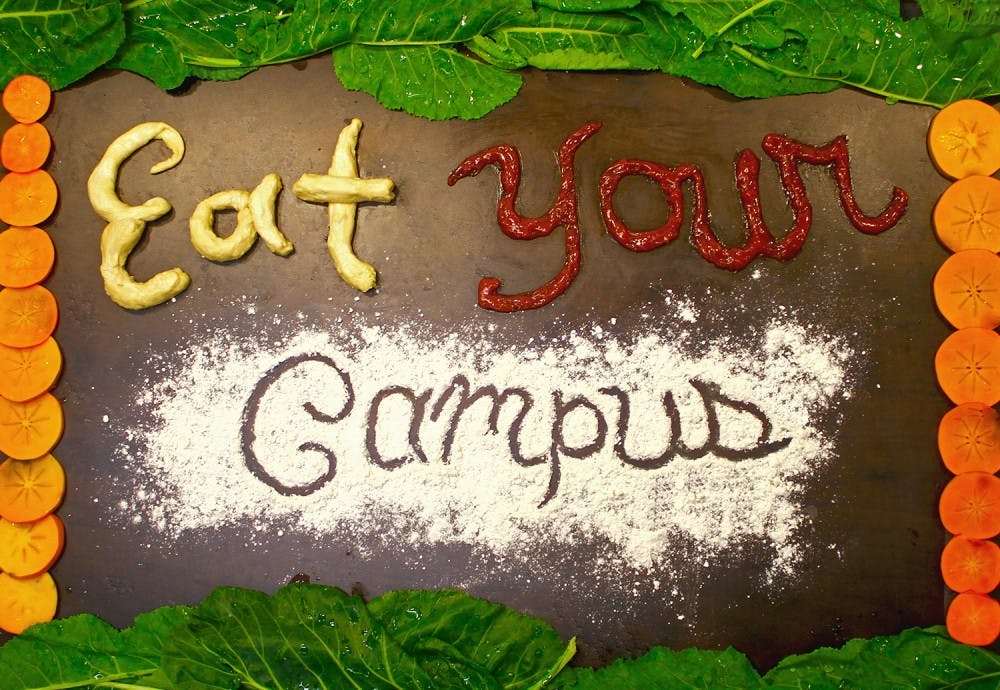“Whatever you do every day, you have to physically walk through campus, and it’s a space that’s underutilized,” Chaisson said. “We’re not talking about starting a farm; we just want people to have that tangible and palpable idea of where what they’re eating comes from.”
Chaisson said she thinks there’s a disconnect between how we eat and how food is grown.
“Agriculture is so separated from everyday life because it’s big farms,” Chaisson said. “This is integrating it into everyday routine. Food is integrated into everyday routine, so where that food comes from should be as well.”
Auerbach said she hopes the project can partner with the CarolinaGO app, which became available in fall 2014, to offer students real-time updates about the edible plants on campus.
“Students can write in and say if the plants are ripe,” Auerbach said.
Auerbach said she is planning to partner with the steering committee of UNC’s Food for All academic theme. Marcie Cohen Ferris and Alice Ammerman are the chairpersons of the committee.
“They’re also proposing a really beautiful edible pocket park near Davis Library that would be a neat place to sit, eat and study, connecting the community to the flavors of our state and region,” Cohen Ferris said. “We hope to see lots of collards planted all around campus.”
Ammerman said the steering committee is awarding “micro grants” for projects relating to food issues on campus and in the community. Ammerman said the grants range in value from hundreds of dollars to thousands of dollars. The money is coming from the Office of the Provost.
“Part of our thinking is that when people write a proposal for what we’re calling a micro grant, they get assistance from the steering committee for getting other resources,” Ammerman said. “So they get the networking and the interdisciplinary nature beyond just money.”
Cohen Ferris said UNC is settled in the heart of one of the most vibrant food movements in the country due to the amount of food activism in the region. She said she hopes Food for All can help draw students’ attention to what’s going on in the community around them.
“I just think it’s exciting to help our Carolina community really gain knowledge about this rich, complex food culture that is North Carolina,” Cohen Ferris said. “By the time students graduate, they have a really clear sense of what North Carolina food cultures are really all about.”
Food for All is the UNC academic theme for 2015-17. It follows Water in Our World, the first-ever academic theme. It began in 2012.
To get the day's news and headlines in your inbox each morning, sign up for our email newsletters.
Terry Rhodes, who served as the co-chairperson of the Water in our World steering committee, said the committee gave grants funded by the Office of the Provost, similar to Food for All.
“These were modest sums of money because we wanted lots of things to happen,” Rhodes said.
Nikki Behnke, co-president of A Drink for Tomorrow, said the theme helped her group get off the ground.
“We only existed for a year officially before the water theme began,” Behnke said. “The water theme was a really crucial resource for us.”
Cohen Ferris said she and others planning Food for All are taking inspiration from Water in Our World.
“One thing that they’ve tried to share with us is to make sure that we involve the Carolina community as much as possible,” Cohen Ferris said. “That, and that we also need to be as loud and engaged with our community as we can to really publicize and promote this theme in ways that really matter to our students.”
university@dailytarheel.com




